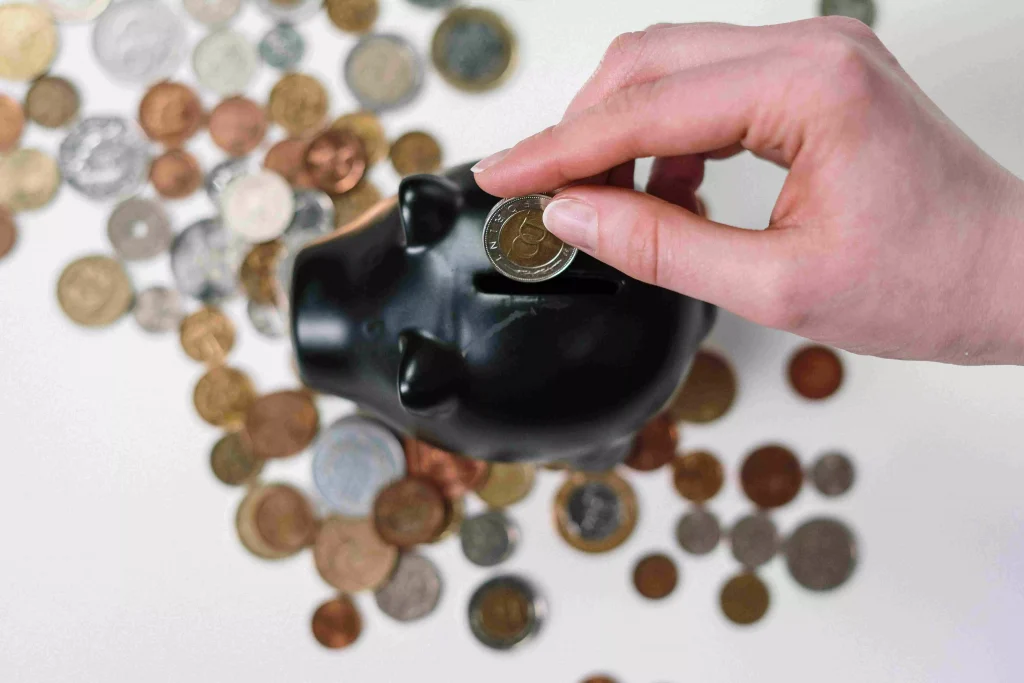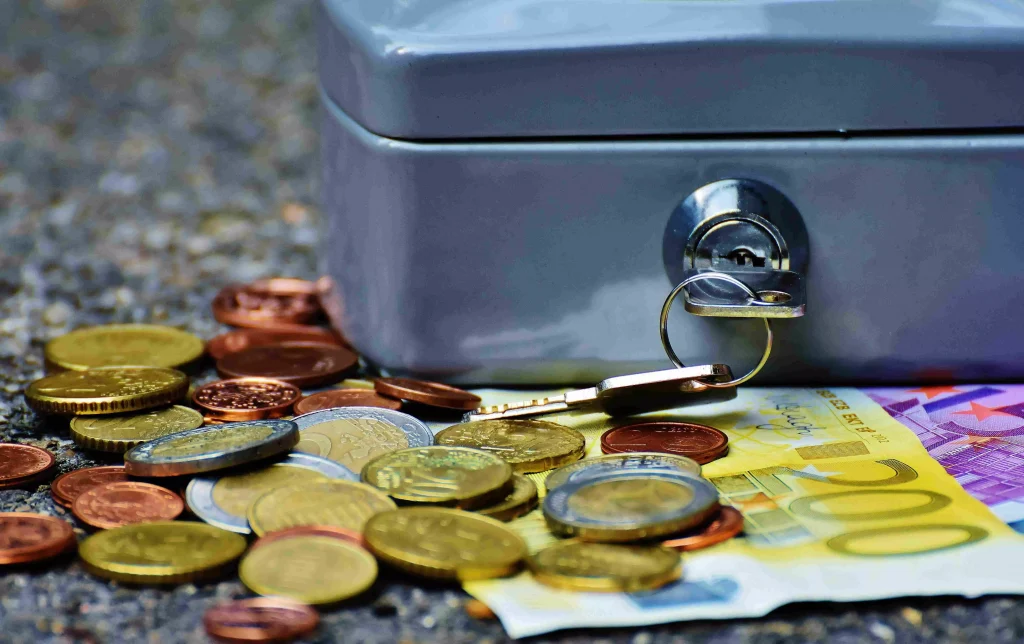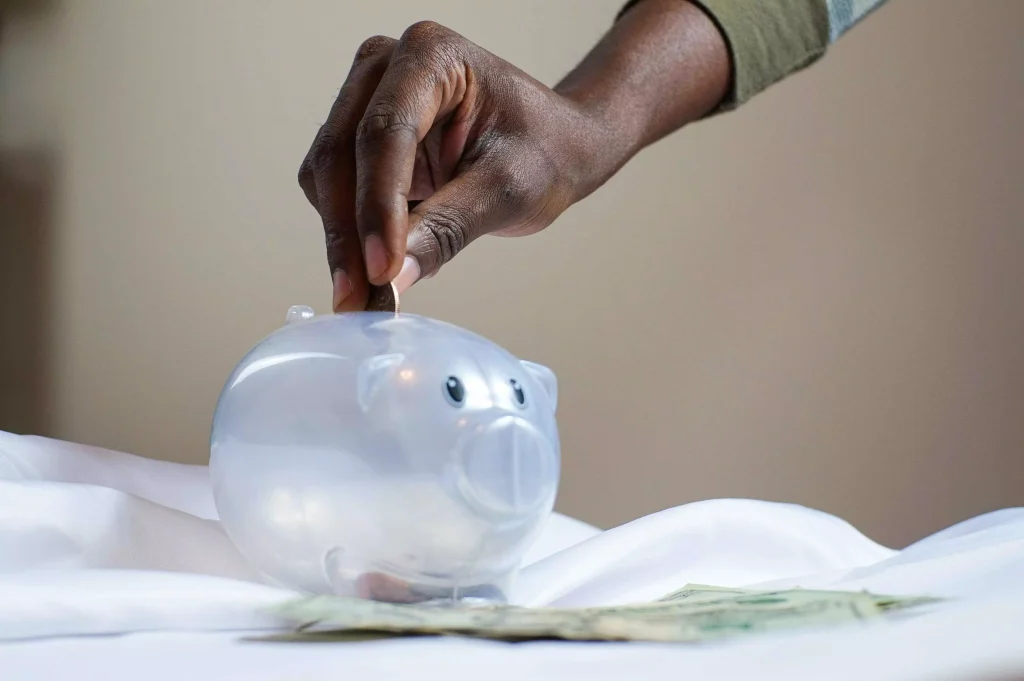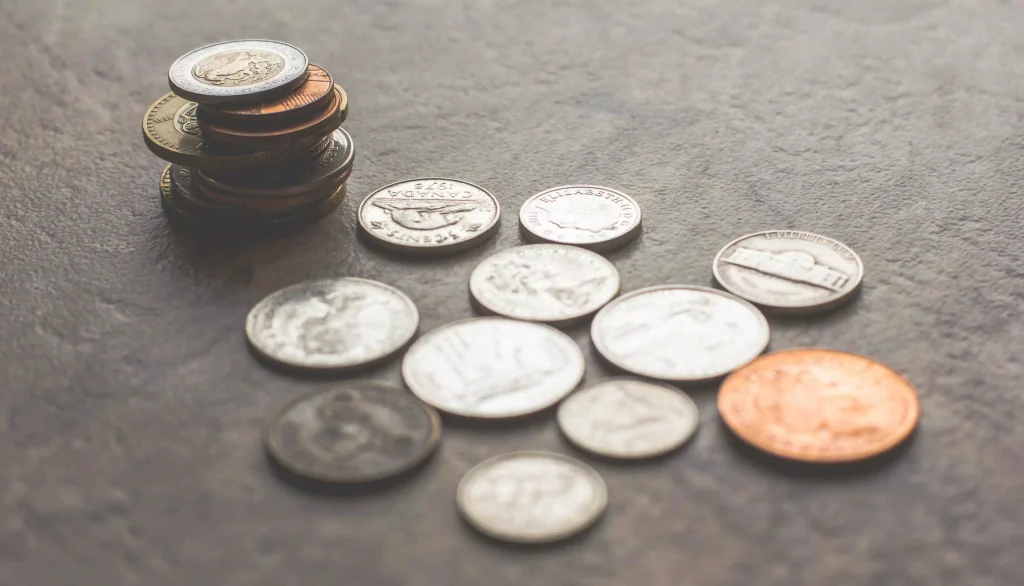There is no denying the significance of monetary savings. It can make it easier for you to deal with the unanticipated costs that come up in life and set you up for a more secure financial future. Nevertheless, determining how much money to put away can be difficult.
How much of each month’s paycheck should you put aside for savings? Although many industry professionals aim for somewhere between 10 and 20 percent, there is no hard and fast rule regarding this range. So with that in mind, let’s delve deeper into it.
Why should you prioritize saving each month?

Putting in effort to increase one’s income and putting money away for the future are both beneficial activities. Your regular savings, on the other hand, will propel you toward a more secure and prosperous future financially.
Because the future appears to be so far away, a lot of us put off saving money. It’s easy to fall into the trap of living only for the moment and spending every last dime you have while doing so. In addition to taking advantage of our youth, many of us are currently enduring hardship and surviving from paycheck to paycheck.
In point of fact, seventy-eight percent of American workers survive from paycheck to paycheck. And close to forty percent of adults do not have enough cash on hand, in savings, or on a credit card to cover an emergency expense of four hundred dollars that they could pay off quickly.
Because of this, the money that you set aside can give you more leeway in your daily activities and decisions. In addition to this, it will give you peace of mind as you travel through life.
Because you are not directly dependent on a particular source of income, you not only have more freedom in the decisions that you make, but you also have more independence. In addition, you have the opportunity to build up your savings for the things that are most important to you.
How much should you save every month?

Putting away twenty percent of one’s monthly salary is advised by a variety of sources.
According to the well-known 50/30/20 rule, you should allocate fifty percent of your budget to necessary expenses such as rent and food, thirty percent of your budget to spending that is up to your discretion, and at least twenty percent of your budget to savings. (Senator Elizabeth Warren is credited with developing the 50/30/20 rule; it is said that she used to teach this rule when she was working as a professor of bankruptcy.)
The recommendation that you set aside at least 20% of your monthly income is one with which we generally agree. However, it is not always that easy to suggest the appropriate percentage of one’s income for that person to save.
Why 20 percent is a good goal for many people

There are a number of rules of thumb that relate to savings, whether it’s retirement savings or emergency savings, but the general consensus is that you should put away between 10 and 20 percent of your income every month for savings. This applies to both retirement savings and emergency savings.
If you can’t save 20 percent of your take-home pay, save whatever you can, with the end goal of getting to the point where you can save 20 percent of your take-home pay, which you can then split between savings for retirement and savings in case of an emergency.
According to Laura Davis, CFP, a fee-only financial planner at Cuthbert Financial Guidance, there isn’t a percentage that works across the board for everyone. “While I know everyone loves rules of thumb and easy tips, there isn’t a percentage that works across the board for everyone. But start.”
How to save more money each month
1. Record your expenses

Finding out how much you spend is the first thing you need to do before you can start saving money. It is important to keep track of all of your expenses; this includes not only your regular monthly bills but also things like cash tips, coffee, and household items.
Recording your expenses can be done with a pencil and paper, a straightforward spreadsheet, a free online spending tracker or app, or any other method that you find most convenient for you. Once you have your data, organize the numbers by categories, such as “gas,” “groceries,” and “mortgage,” and then sum the amounts for each category.
Make sure you have included everything by checking your record against your bank and credit card statements.
2. Evaluate your priorities

As you begin to save more money, you should examine your top priorities. You should not, in the name of achieving your objectives, remove from your budget everything that contributes to the pleasure you take in living your life. Instead, come up with innovative ways to deal with the spending that doesn’t bring you joy.
For instance, it’s possible that you’re not willing to give up having dinner out with your friends once a week. On the other hand, if you only use a few of your subscriptions occasionally, you might be able to cancel the rest of them.
3. Save money on your utility bills

You can save quite a substantial amount of money each month by reducing the amount you spend on utilities if you cut back. Your electricity bill and gas bill are typically the primary contributors to the problem.
As a consequence of this, you should make it a routine to investigate numerous service providers on a consistent basis to determine whether or not you could obtain a more favorable offer elsewhere.
In addition, you should think about the following:
- Keeping your thermostat at a reasonable temperature;
- Unplugging electrical devices rather than keeping them on standby;
- Changing to LED lightbulbs, which use 90 percent less energy than standard models;
- Replacing any appliances that aren’t energy-efficient;
- Regularly monitoring your energy usage so that you can spot areas where you could decrease your consumption.
4. Reduce your car use

Because it’s so expensive to keep a car running and in good repair, it makes financial sense to drive your vehicle less frequently.
Cycle to work programs are an excellent way to acquire a respectable bicycle without having to spend hundreds of pounds up front on the acquisition of one. And if you pedal more, not only will you be better for the environment, but for your mind and body as well.
5. Save money when grocery shopping

When it comes to shopping for groceries, there are a lot of different ways to save money. The creation of a weekly meal plan is a good place to begin because it will allow you to know exactly which components of food you will need to purchase before you go to the store. When you stick to a detailed shopping list, you increase the likelihood that you will stick to a detailed budget.
Another helpful piece of advice is to perform some basic mental computations while you are out shopping. This indicates that you are required to keep a running total of how much your various shopping items are costing you each time you add an item to your basket. It would be helpful to use the calculator that is on your phone in order to assist you with this.
Yet, avoiding going shopping while you are feeling hungry is likely one of the most helpful pieces of advice that can be given. An empty stomach will tempt you more than anything else to go over your allotted money for groceries and buy expensive, pre-packaged snacks. This will cause you to stray further from your budget than anything else will.
6. Cook more

This is a continuation of the point that was made earlier. Making an effort to prepare more of your meals at home from scratch can not only have a beneficial effect on your health but can also help you save a significant amount of money on your monthly food bill.
The profit margin on ready-made meals and sauces is not as low as one might expect. It is possible to prepare a substantial quantity of delicious, freshly made tomato sauce for the same cost per serving as a couple of pence.
7. Cancel any unused subscriptions

There are a lot of companies that derive the majority of their revenue from membership subscriptions. Why? Because once people have signed up for them, the idea of canceling them seems like too much of an inconvenience.
Cancelling a subscription that is not being used is typically an easy process that can save you a significant amount of money. When deciding whether or not to continue making payments for a subscription, you should first ask yourself the following questions:
- How frequently do you access this subscription service?
- Is there a more cost-effective alternative that’s readily available?
- If you didn’t have it anymore, how much of an impact do you think it would have on your life?
If you find yourself answering that you don’t use the subscription that often or that there are cheaper alternatives available, it’s probably time to cancel it because you can save money by doing so.
You can save money each month!

Putting money aside for retirement is one of the most important things you can do to build a solid financial foundation for yourself. Although getting started may be difficult at first, it will become less difficult the more you practice it.
When you find yourself wondering, “How much should I save each month?,” first evaluate your current financial situation and then make a decision regarding the amount of money you wish to set aside.
Think about how much you can afford based on your current income and how much you spend each month. The next step is to strike a balance that is appropriate for your circumstances.
It is not impossible to realize the goal of setting money aside on a monthly basis. Even if it isn’t always simple, your future self will be grateful to you for doing it.
Read more articles in the Business Category
